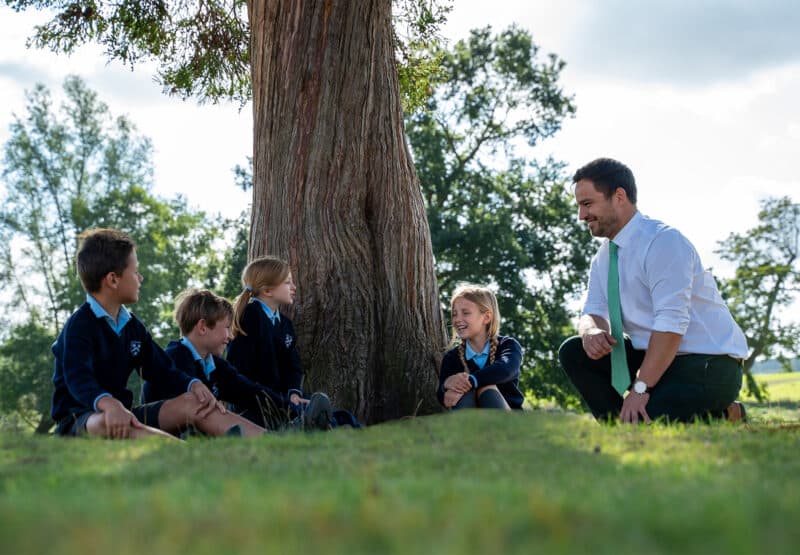Framlingham College academic scholars were able to get hands–on experience in the science lab as part of the annual Biology Week, which took place from 7th – 11th October.
Celebrating the sciences alongside the Royal Society of Biology (RSB), Framlingham College hosted an innovative focus week for our aspiring biologists, offering pupils the rare opportunity to carry out high levels of practical work and benefit from talks by industry specialists.
Pupils rolled up their lab coat sleeves for anatomic dissections, studies of leaf chromatography, and micro-biology research during daily lab sessions – delving into the ‘Micro Safari’ in search for multicellular animals such as Nematodes, Tardigrades and Rotifers; examining species of holly and nettle leaves to determine defensive mechanisms on plants; , extracting the colour pigments from various plants in leaf chromatography;, and using science to create homemade ice cream with Principal, Louise North.

We were also delighted to welcome experts from the University of Oxford for daily lectures on a variety of topics, including, ‘Parasitic and Carnivorous Plants’, ‘Why Plants Are The Greatest Traders on the Planet’, and ‘The Universal History of Us’, as well as alongside a special ‘Molecular Modelling, Coral Reef Research and Studying Wildlife’ lecture from Space Virtual.
Year 13 pupil and Biology Subject Ambassador, Abdul A, said: “My favourite part of Biology Week were the lectures by the University of Oxford. Hearing from such prestigious speakers from different backgrounds and different academic journeys really inspired me. It was also interesting hearing about things that go beyond the curriculum, leading me to research more about things that may not be in the subject specification.
“Subject weeks like this allow pupils to explore and delve into the world of a new subject and see how interesting and enjoyable something new may be. I think for younger years, especially for those in Year 11, Biology Week offers an insight into the higher curriculum which can help contribute towards their A-level choice. For me, the week has allowed me to experience things that aren’t on the current A-level Biology curriculum, such as advanced neuroscience, and has broadened my understanding of cutting-edge science – something that I wouldn’t otherwise be exposed to.

“This week has not only inspired me, but reinforced to me that I do want to study science at university, more specifically sport and exercise science, which has many direct relations to biology. Our previous immersive subject day, Brain Day, was another particularly interesting immersive experience as it was something that I wasn’t introduced to but has now sprouted an increasing passion for psychology and neuroscience.
“For those looking at taking Biology at A-Level, I can assure you it is a very enjoyable and interactive ‘hands– on’ subject in terms of some of the practical experiments that we carry out. Biology is one of the most vital subjects because it gives everyone further understanding into why things happen – from why different muscles contract in the body, to where an electrical impulse is passed in the brain, to why we tackle infections the way we do. Alongside the trips, conferences, dissections and lab work, the actual curriculum itself and the topics within the subject are complex in their own respect, but very easy to tackle if you set a good work pace and keep at it. The teachers and support team from the Biology Department are always there for you.”

Launched by the RSB in 2012, the annual Biology Week takes place every October with the aim to inspire people of all ages and backgrounds in biology.
Speaking about the importance of the week in a statement on their website, the Royal Society of Biology said: “Innovation in biology will help us to support all life on Earth now and in the coming decades. Biology Week aims to celebrate and raise the profile of these achievements and the important work that bio scientists are doing, and to highlight this to all public audiences.
“Biology is an incredibly wide field – the broad range of disciplines that our member organisations cover demonstrates this. Research in these fields will be instrumental in overcoming some of our most pressing global issues, including climate change, developing sustainable food and fuel, and diagnosing and treating diseases.”







